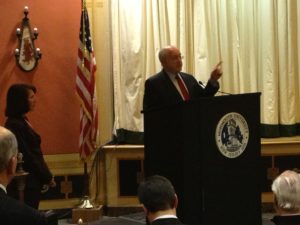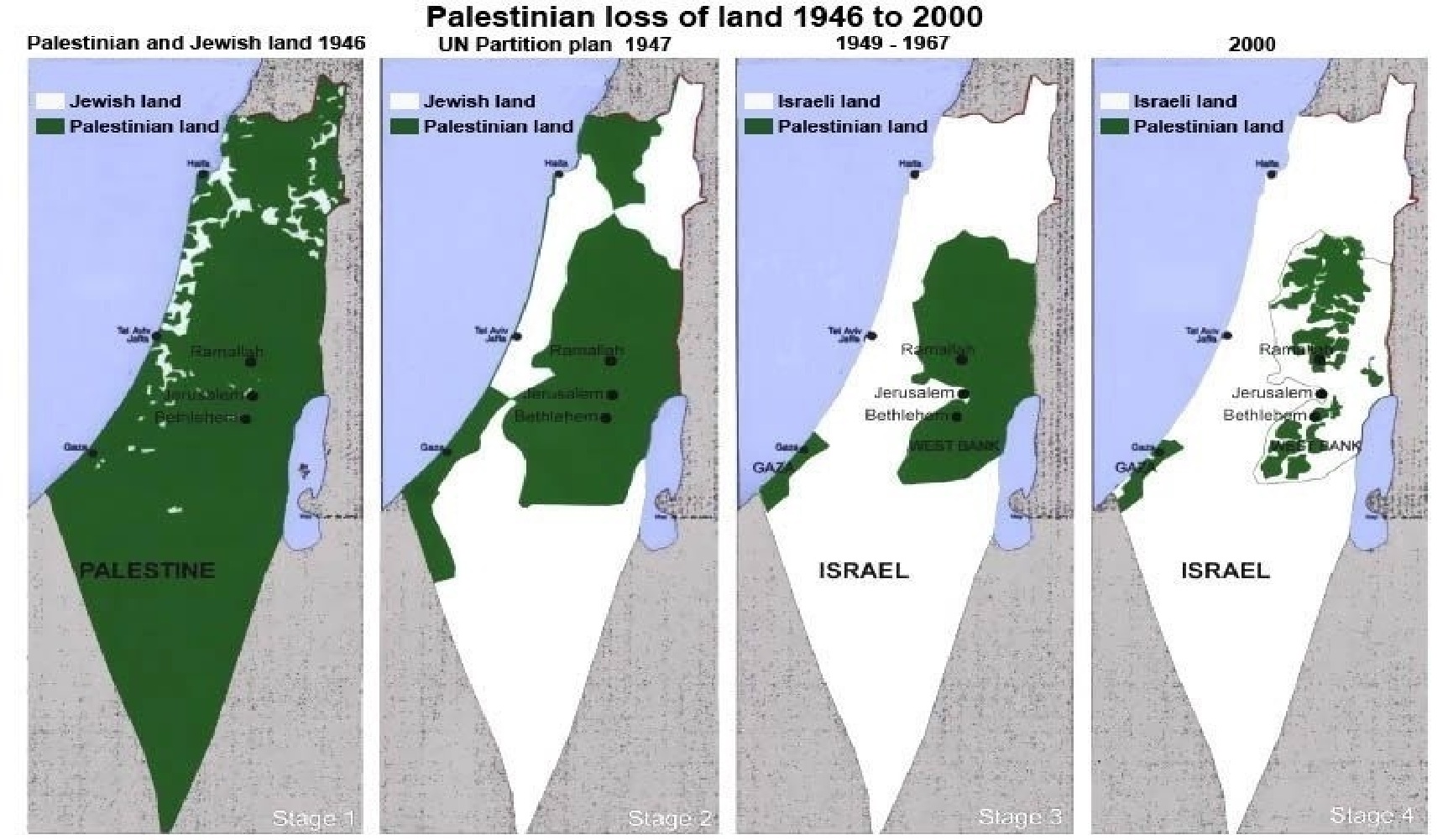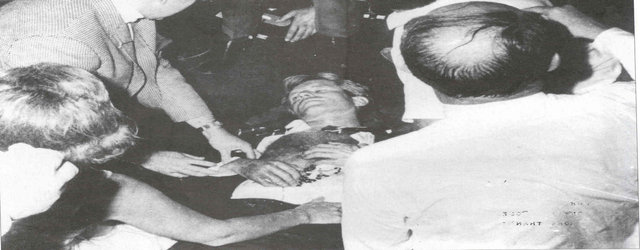(The Verge) – On Tuesday March 5th, the Monmouth University community was graced by the presence of a very prominent political figure, former Ambassador Daniel Kurtzer. In accordance with the Jewish Federation of Monmouth County, the speech was put together to inform students, staff members and community dwellers about the strides taken (or lack thereof) towards Middle Eastern peace talks.
With a distinguished, prominent twenty-nine year diplomatic career, Kurtzer has served as the Ambassador to Israel from 2001-2005 during the Sharon years and Ambassador to Egypt during the Clinton administration. To name a few interesting facts that surround his persona: he was present at the American embassy in Cairo when Anwar Sadat was assassinated in 1981 and was also on the White House lawn brokering peace talks in 1993 when the Oslo Accords were officially agreed to. He was also in Israel when Prime Minister Sharon decided, against the will of some of his own party and constituents, to pull out of the Gaza.
Since leaving foreign diplomatic work in 2006 as a Career-Minister, Kurtzer has served as a Professor of Middle East policy studies in the school of Public and International Affairs at Princeton University. Needless to say, he’s been through the rigor of foreign relations and has had his expertise valued immensely; being a top foreign relations expert and author of books on the subject matter (“Negotiating Arab-Israeli Peace”).

Starting off the talk, Ambassador Kurtzer laid out his agenda for the evening, hoping to make attendees really contemplate both sides of the argument for some sort of peace (or ‘appeasement’ in the words of George W. Bush) between Israelis and Palestinians. He forged three questions that would guide the evening’s speech, asking whether the peace is desirable, possible and urgent.
“Crony capitalism and corruption have become ways of life in the region…and with changes afoot, it may be nothing short of cosmic,” he said to the diverse Wilson Hall auditorium audience. He went on to discuss how political Islam is becoming the ideology now, not necessarily radical Islamists. Because of that, and trends in the past few decades, the idea of one, unified “Arab Universe” has gone by the wayside. With Arab Spring tensions amidst, and heightened ‘two-state’ ideas forming between Israel and Palestine, it’s safe to say the region is unstable.
With strong military and national security interests in the region, Kurtzer answered the question of whether U.S. intervention is desirable and possible by saying that anything other than peace can only lead to more fatigue; a ‘fatigue’ that has caused much of the Middle East to categorize the U.S. as lazy or unaffected.
Through reliable polling sources, Kurtzer revealed that each side (Israelis and Palestinians) has set ‘mapped visions’ of where the peace talks may go. However, each did not want to see a two state solution. Because of that, plus the ever-shrinking size of Palestinian territory (monitored since the pre-Zionist movement), it’s becoming more and more apparent that something must be done. As Israelis do not want to break up the capital of Jerusalem into two, neither do the Palestinians want to see Israelis obtain the bulk of the ‘prize.’
But as the two-state idea has floated around for years, critics question whether taking the initiative is really urgent at this time. If it is not taken, according to Kurtzer, the U.S. will only be seen as more fatigued by powerful figures in the region, and Israel, a profound ally of the U.S. may only be inching closer towards escalated military action, even as they ward off threats from the ominous Iranians.

Palestinians as well may be destabilized enough to want to inflict some sort of eradication of the Israeli state. Israel’s own demographers have each split into two groups, which maintain Israel may change via vote in twenty years, or farther down the line. But just buying time for Israel is not really want the U.S. wants to see, instead a continuation of 2008-reminiscent peace talks need to continue.
Though the talks were strangely halted during much of the Bush-era, they were intense in 2008 between the two sides. The Obama administration did not pick up where negotiations had left off however, even though an envisioned ‘end’ may have been in site. So is peace feasible? At least 2008 said so…
Though Kurtzer looked through the lens of the West Bank (partially) to determine whether peace was urgent from the foreign state’s perspective, he determined that it is much more impactful than any single side can assume. Although lavish new hotels are being built in the West Bank, Jewish settler communities and scattered Palestinian areas that have been in control of an independent Palestinian government since 1993 make for an awfully lawless atmosphere.
This environment, escalated exponentially, can result in a problematic nuisance that just may be solved by peace brokering talks. The U.S., with strong interests in the area, especially with the reputation as being the world’s largest broker of peace/middleman, needs to step in, albeit even gradually, to help move the process along.
So now, if this is so, and peace can at least be put as an aspiring destination in the horizon, the U.S. can take pride in knowing that stabilization may ensue and parties may soon be happy, instead of having a Palestinian leader outright tear on the lawn of the White House like 1993 where she felt Palestine was being pushed aside.
In a world with nuclear threats and escalating military power, a long-harbored problem is nothing to discretely put aside, so Kurtzer suggested that the U.S. does not even need a plan per se, but needs to “attune to its strong American will,” and see through some of these peace talks.
Maybe, twenty years from now we’ll be able to look back at 2013 and say that was the year of the “___ Accords” in which beneficial peace was brought to both sides. Then, we can all commend Ambassador Kurtzer for his longstanding vision of peace and a turn for the better.
As the speech winded down and questions were fielded, Kurtzer appropriately ended the speech by saying, “Well I couldn’t even get into Iran discussions today, but I’ll just use that as an invitation to come back and speak again!”
…Much obliged Mr. Ambassador, much obliged. We will welcome your next discussion here at Monmouth University.





